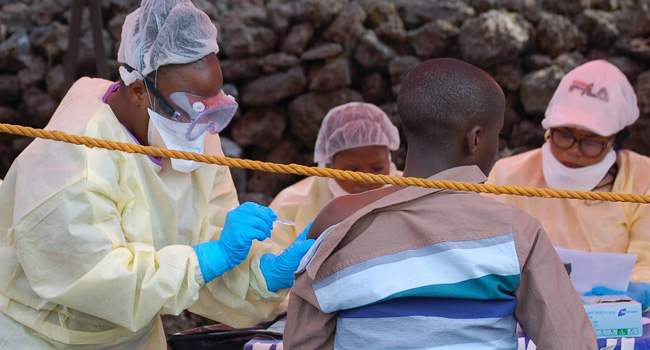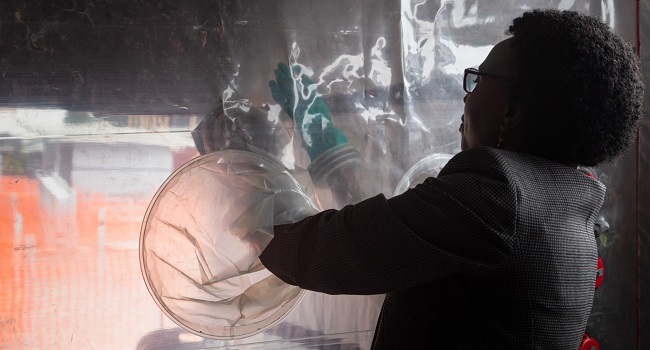
Sierra Leone announced Saturday it will vaccinate health workers against Ebola in areas near its border with Guinea, where the disease re-emerged in January.
Health Minister Austin Demby said in a statement that US drugs firm Johnson & Johnson was to supply 640 doses of its Ebola vaccine on Saturday and 3,840 doses on Sunday as donations.
“In view of the ongoing outbreak of Ebola in neighbouring Guinea, frontline healthcare workers in border districts are at risk of infection should the virus spill over to Sierra Leone,” the statement said.
READ ALSO: DR Congo Starts Countdown To End Of Ebola Outbreak
The deadly virus reappeared in Guinea in January, evoking the spectres of the devastating 2013-2016 Ebola epidemic in West Africa, which left 11,300 dead in Guinea, Liberia and Sierra Leone.
The official death toll in Sierra Leone was some 4,000 people.
A total of 23 cases have been reported since January in Guinea, mainly in the Nzerekore region, near Liberia, Sierra Leone and Ivory Coast.
Sixteen cases have been confirmed, including five deaths, according to the World Health Organization.
In February, Guinea received more than 11,000 doses of Merck’s vaccine provided by the WHO, but measures taken to stop infections, isolate and treat patients and carry out vaccinations sometimes meet resistance from residents.
Ebola, which is transmitted through close contact with bodily fluids, causes severe fever and, in the worst cases, unstoppable bleeding.
Death rates are high, at around 50 percent on average of those infected, and up to 90 percent for some epidemics, WHO data shows.
AFP




